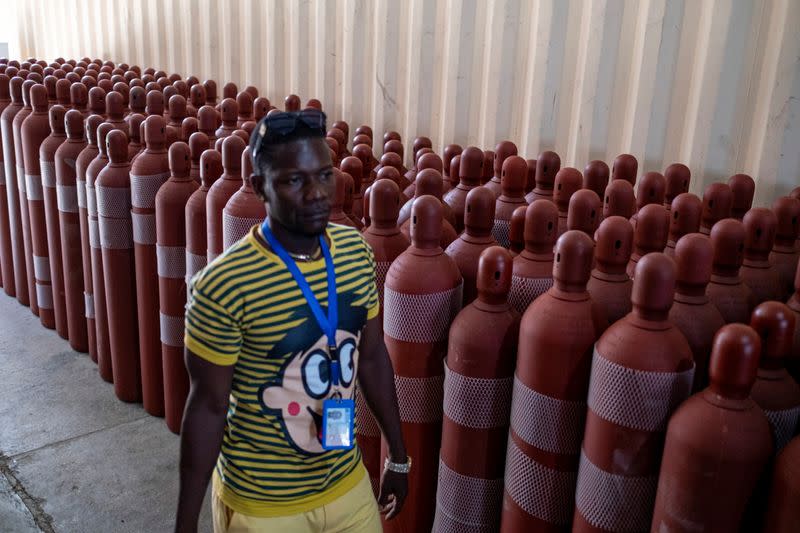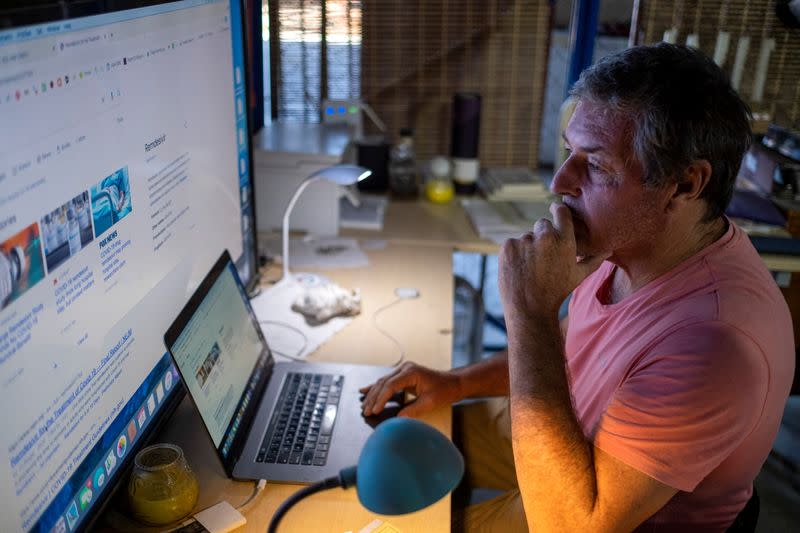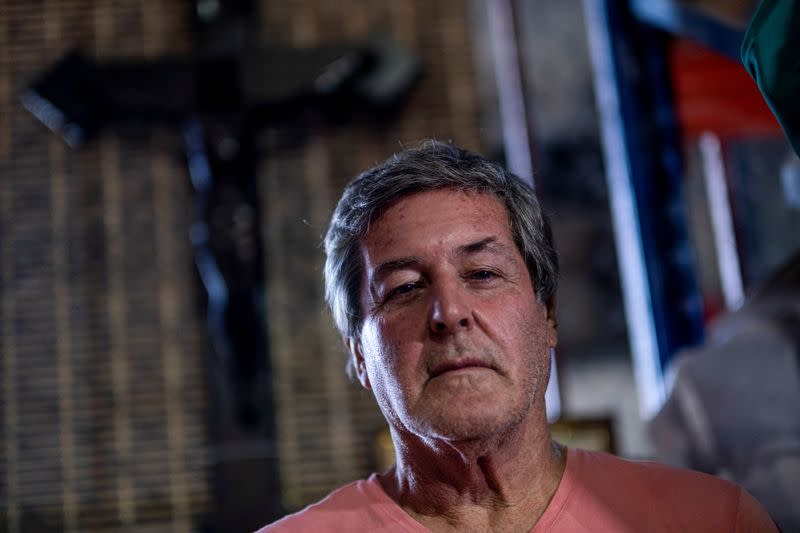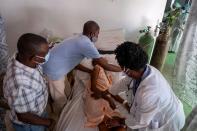In Haiti, COVID pandemic rages amid political crisis
By David Alire Garcia
PORT-AU-PRINCE (Reuters) - Laying on her side in a sleeveless peach-colored dress, an elderly patient groaned as she gasped for air in one of the Haitian capital's few medical units equipped to care for those hardest-hit by the coronavirus pandemic.
The 81-year-old wore a clear plastic mask on her face attached to a metal tank providing 21 liters of oxygen per minute, the maximum reserved for the most serious COVID-19 cases at St. Luke's Hospital on the outskirts of Port-au-Prince.
"Each breath she takes, every respiratory movement, is very painful," said Dr. Nathalie Colas, the hospital's medical director, on a tour of the ward, where rooms were separated by thin curtains that moved gently with the Caribbean breeze and humming ceiling fans.
As Haiti has been plunged into political turmoil by the assassination of President Jovenel Moise this month, the poorest country in the Americas has battled the pandemic against a backdrop of scant medical resources, lack of vaccines, and simmering street violence.
About 40 COVID-19 patients were receiving care at St. Luke's, down from around 100 over the past few months. That could be a sign that the pandemic is easing in the crisis-racked country, which still bears the scars of a devastating 2010 earthquake.
But it's almost impossible to know for sure, according to Father Rick Frechette, St. Luke's founder and president. "I can't even guess," he said.
Frechette said there were many other factors at play, including an almost total absence of testing and vaccines, plus the raging gang violence that keeps many infected Haitians from accessing medical care.
In a cavernous warehouse, where supplies were stacked high next to an industrial oxygen concentrator capable of filling 40 tanks a day, Frechette paused at a spot where coffins were assembled with scraps of wood.
"We need them all the time," he said. The death rate among the roughly 800 COVID-19 patients treated to date at the hospital was running at around 10%, Frechette said.
Haiti's already under-resourced administration was plunged into chaos by Moise's killing, which the government blamed on a gang of mostly Colombian mercenaries. A newly appointed prime minister said this week he would try to hold elections as soon as possible.
Haiti's health ministry reported on July 6 nearly 19,400 total infections and only 487 deaths. But the numbers have not been updated since and many experts are skeptical of them.
"The figures are wrong," said Dr. Ronald LaRoche, who runs Haiti's DASH network of nonprofit private clinics that provide comprehensive medical services to some 40,000 patients for $10 a month.
"We must have a higher contagion rate than the whole world," he said, pointing to packed public transportation and crowded living conditions in the impoverished nation.
Vaccination rates are amongst the lowest in the world.
This week, St. Luke's is scheduled to begin administering some of Haiti's first publicly-distributed coronavirus vaccines, following a 500,000-dose donation from the U.S. government via the COVAX global vaccine program aimed at boosting inoculations in poor countries.
But LaRoche said the population is much more resistant to the virus thanks to strong immune systems built up by exposure to many other bugs over years.
The median age of Haiti's nearly 12 million people is about 23, according to data from Haiti's IHSI statistics agency, and average life expectancy is barely 64, another factor that has likely cut the former French colony's pandemic toll.
At St. Luke's COVID-19 ward, happy endings are the most common outcome.
"I suffered so much, but after two weeks I'm almost good to go home," said a smiling Vil Aublard, a 54-year-old artist and father of two, sat upright in his bed.
(Reporting by David Alire Garcia; Additional reporting by Andre Paultre and Robenson Sanson, Editing by Alexandra Hudson)

 Yahoo Movies
Yahoo Movies 










